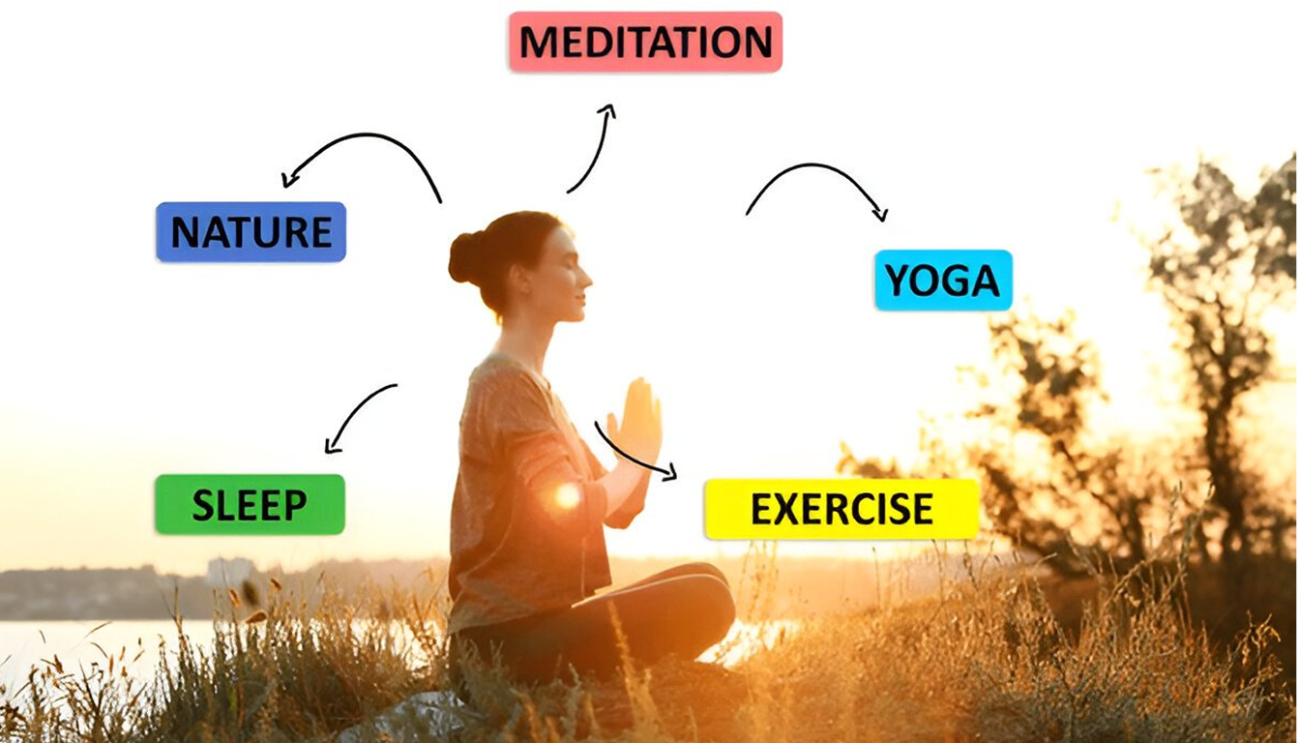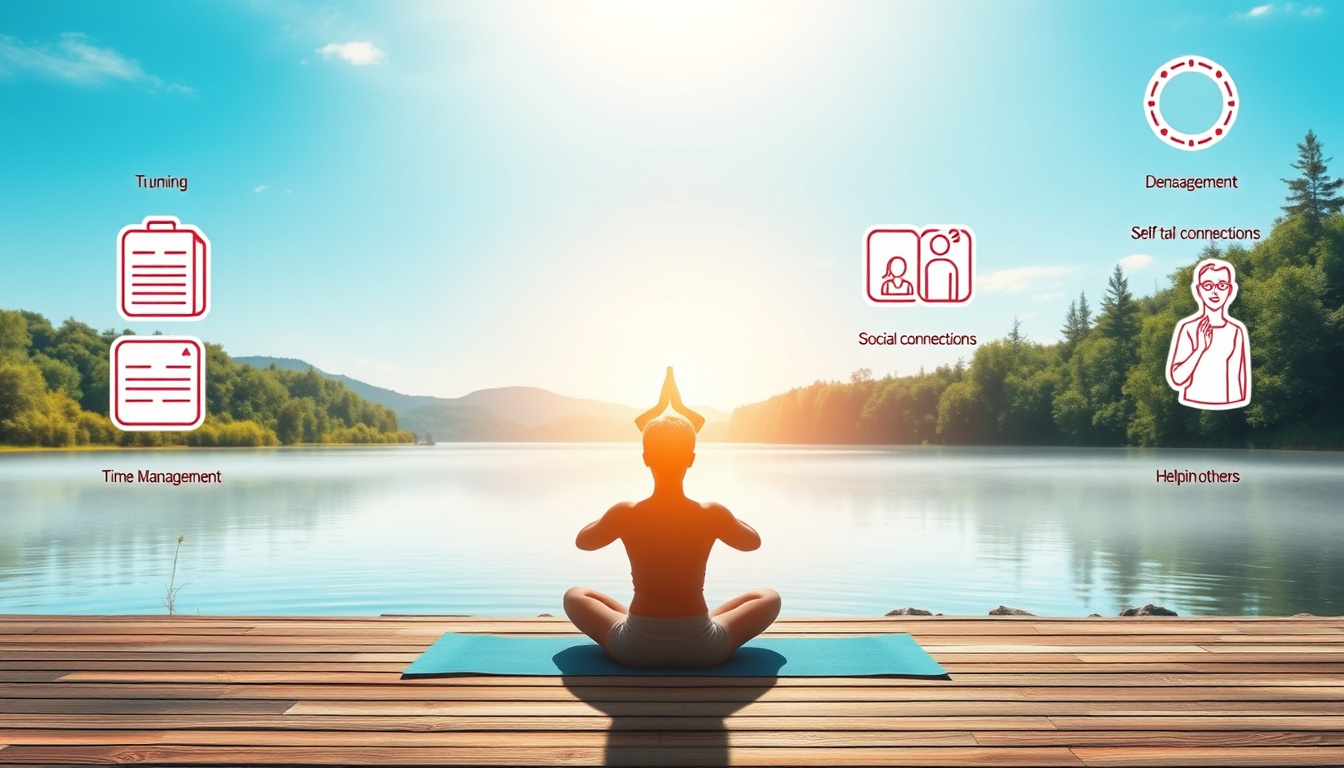Mastering Calm: Effective Stress Management Techniques to Transform Your Life
Stress is an inevitable part of life, affecting everyone at some point. While minor stress can motivate action and focus, chronic or overwhelming stress can detrimentally impact both physical and mental health. The good news

Stress is an inevitable part of life, affecting everyone at some point. While minor stress can motivate action and focus, chronic or overwhelming stress can detrimentally impact both physical and mental health. The good news is that adopting practical stress management techniques can help regain balance, boost resilience, and improve overall well-being. This article explores a broad spectrum of effective stress relief strategies, ranging from quick fixes to long-term lifestyle changes, empowering you to master calm and transform your life.

Understanding Stress and Its Impact
Before diving into techniques, it’s important to recognize how stress manifests and affects you. Stress triggers a complex biological response that can increase your heart rate, raise blood pressure, and release stress hormones like cortisol. When persistent, these changes can compromise immune function, disturb sleep, and contribute to anxiety or depression.
Effective stress management is about how you respond to stressors—recognizing your limits, implementing coping mechanisms, and nurturing habits that promote emotional strength and relaxation.
Fast-Acting Stress Management Techniques
When stress strikes suddenly, immediate relief strategies can help calm the mind and body almost anywhere:
1. Deep Breathing Exercises
Focusing on slow, controlled breathing activates your parasympathetic nervous system, promoting relaxation within minutes. Techniques like diaphragmatic or belly breathing—where you inhale deeply through your nose, letting your stomach rise, hold briefly, and exhale slowly—reduce physical tension and alleviate anxiety.
2. Guided Imagery
This technique involves mentally transporting yourself to a peaceful, safe place—like a beach or forest—using vivid sensory details. Guided imagery can be practiced independently or with recordings, offering a quick mental escape to reduce stress.
3. Progressive Muscle Relaxation
By systematically tensing and then relaxing muscle groups from head to toe, you become more aware of physical tension and learn to release it. This practice reduces muscle tightness associated with stress and can be done in just a few minutes.
4. Meditation and Mindfulness
Even brief mindfulness meditation—paying nonjudgmental attention to the present moment—interrupts stress-inducing thought patterns. Consistent practice fosters a calmer mindset and improved emotional regulation.
5. Physical Activity: Take a Walk
Physical movement, such as walking, redirects your focus and releases endorphins—natural mood boosters—which quickly ease emotional intensity and clear the mind.
6. Social Connection and Physical Touch
Simple acts like hugging a loved one stimulate oxytocin release, a hormone that lowers stress hormones and promotes relaxation. Talking and laughing with friends also provide emotional comfort.
7. Aromatherapy
Certain scents, such as lavender or chamomile, can reduce stress by influencing brain activity and decreasing stress hormones. Using diffusers, scented candles, or bath products is an accessible option.
Long-Term Stress Management Strategies
Sustainable stress relief hinges on lifestyle adjustments that build resilience and overall wellness:
1. Regular Exercise
Engaging in consistent physical activity enhances sleep quality, mood, and brain function while lowering anxiety. Aerobic activities like running, swimming, cycling, or even dancing stimulate endorphin and endocannabinoid production, contributing to a natural “high” and increased stress tolerance.
2. Balanced Nutrition
A nutrient-rich diet supports brain health and moderates the negative effects of stress. Focus on complex carbohydrates, lean proteins, healthy fats (like omega-3s), and antioxidant-rich fruits and vegetables. Avoid excessive sugar, caffeine, and processed foods, which can increase stress.
3. Prioritize Sleep Hygiene
Stress can disrupt sleep, and poor sleep exacerbates stress in a harmful cycle. Establish calming bedtime routines, avoid electronics before sleep, limit caffeine, and create a dark, quiet, and cool bedroom environment to promote restorative rest.
4. Relaxation Practices: Yoga and Meditation
Yoga combines gentle movement, stretching, and deep breathing to reduce anxiety and physical tension. Meditation, with regular practice, enhances mindfulness and emotional balance.
5. Time Management and Assertiveness
Organizing your tasks, setting realistic goals, saying no to overwhelming demands, and assertively communicating your needs prevent unnecessary stress buildup.
6. Positive Self-Talk and Cognitive Strategies
Replacing negative thoughts with encouraging, positive ones improves coping skills and emotional health. Cognitive-behavioral therapy (CBT) is effective for reshaping unhelpful mental patterns.
7. Social Support and Connection
Strong relationships provide emotional support that buffers against stress. Regular interaction with friends, family, or support groups increases feelings of belonging and decreases isolation.
8. Helping Others
Engaging in volunteer work or acts of kindness fosters a sense of purpose and resilience, diverting focus from personal stress to altruistic efforts.
Healthy Habits to Avoid
To optimize your stress management, steer clear of unhealthy coping methods such as smoking, excessive alcohol consumption, drug use, or compulsive behaviors. These may provide momentary relief but ultimately worsen stress and health outcomes.
Final Thoughts
Mastering calm through effective stress management techniques is a dynamic process requiring patience, self-awareness, and commitment. Combining immediate relief methods with long-lasting lifestyle adjustments equips you to handle life’s challenges with greater ease and resilience. By embracing these strategies, you pave the way for improved mental clarity, emotional stability, and a more balanced, fulfilling life.
Quick Stress Relief Recap:
- Practice deep, mindful breathing.
- Use guided imagery to mentally escape stress.
- Engage in progressive muscle relaxation.
- Take short walks or do light exercise.
- Connect socially and embrace physical touch.
- Incorporate aromatherapy where possible.
Sustainable Strategies Summary:
- Commit to regular physical activity.
- Eat a balanced, nutrient-rich diet.
- Prioritize sleep with good hygiene.
- Practice yoga and meditation consistently.
- Manage your time and communicate assertively.
- Foster positive self-talk and seek therapy if needed.
- Build and maintain strong social networks.
- Help others to strengthen resilience.
By intentionally applying these diverse and science-backed stress management techniques, you can transform stress from a debilitating force into a manageable aspect of what makes you human. Start small, stay consistent, and watch your capacity for calm grow daily.



